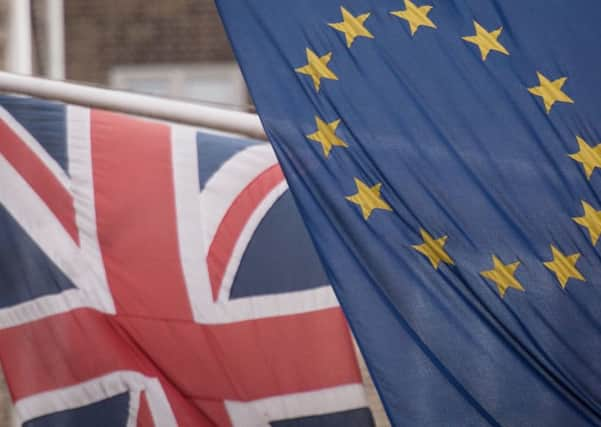No need to delay free trade deal with EU


Ask its proponents what “transition” is supposed to achieve and each gives a radically different answer – if any. For some, it is a period post March 2019 during which we continue negotiating the details of a permanent free trade agreement. For others, it is a period during which we phase in a final agreement already settled before we leave.
Yet others assume transition relates not to things we will negotiate with the EU27 but to our own policies once we get back control over immigration, agricultural, fishing etc. Diehard Remainers see it simply as a way of prolonging the status quo in the hope that we never actually leave the EU.
Advertisement
Hide AdAdvertisement
Hide AdMany of these ideas are mutually contradictory. Almost all involve prolonging the damaging uncertainty facing business.
Most people who have not analysed what a free trade agreement between the UK and the EU27 will involve assume it will require major changes and complex details. They have been repeatedly told that the Canada/EU agreement took years to negotiate.
But that is a totally false comparison. An agreement between the UK and EU would be the first free trade agreement ever negotiated between countries which already have free trade. So it would be uniquely simple and involve minimal changes to the status quo.
Conventional free trade negotiations can involve years haggling over how fast to phase out tariffs on 10,000 different products and how to “converge” thousands of product specifications.
Advertisement
Hide AdAdvertisement
Hide AdAny free trade deal would end with zero tariffs and minimal changes to our rules. Zero tariffs to zero tariffs cannot take more than 10 minutes to agree and unchanged rules not much longer. Neither need any conceivable transition.
A free trade agreement with the EU27 would entail only two significant changes. First, the EU would introduce Rules of Origin. These prevent third countries avoiding the EU’s Common External Tariffs by routing goods through the UK once we abolish tariffs on certain goods from outside the EU.
Such rules apply to exports from Norway and Switzerland to the EU. Whether the EU will apply the same or different rules to us may not be known until late in the day. HMRC should prepare to operate whatever rules emerge and encourage companies trading with the EU to familiarise themselves with these procedures.
The need to implement final decisions could justify retaining the Common External Tariff for at most a few months post-Brexit.
Advertisement
Hide AdAdvertisement
Hide AdThe second feature of a free trade agreement would be a “divergence” process – what happens when the EU or UK alter any initially identical regulations. Divergence processes are normal in trade deals. Given the precedents both parties have accepted in other agreements, that should not take long to agree. Nor is there any conceivable transition to such a mechanism.
Many advocates of transition imagine that a free trade deal will involve introducing tariffs on some products – and want to phase them in.
However, WTO rules say a free trade agreement must remove tariffs from substantially all goods. Others envisage problems which will only arise if the EU refuse a free trade agreement. In which case, we will trade with the EU on the same terms as America, Japan and China.
Our exporters will face an average tariff of four per cent – scarcely a “cliff edge” compared to their 15 per cent exchange rate boost since the referendum. It might be desirable to phase in above average tariffs (on cars, food, etc).
Advertisement
Hide AdAdvertisement
Hide AdBut the EU will only refuse a free trade deal if they want to show their voters that leaving the EU causes difficulties – in which case they are scarcely likely to agree a transitional deal.
In short, a transitional arrangement would only be negotiable when it was unnecessary. And when it might be useful it will not be negotiable.
Remainers rely on a “transitional” deal like drunks lean on a lamppost – more for support than illumination. It is time they spelt out what problem it would solve, how and why the EU would agree to it.
Peter Lilley is a former Tory MP. He was a Cabinet minister in Margaret Thatcher and John Major’s governments.